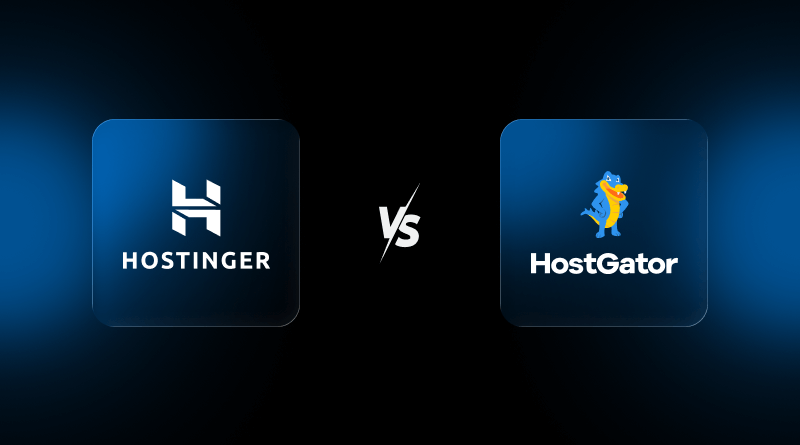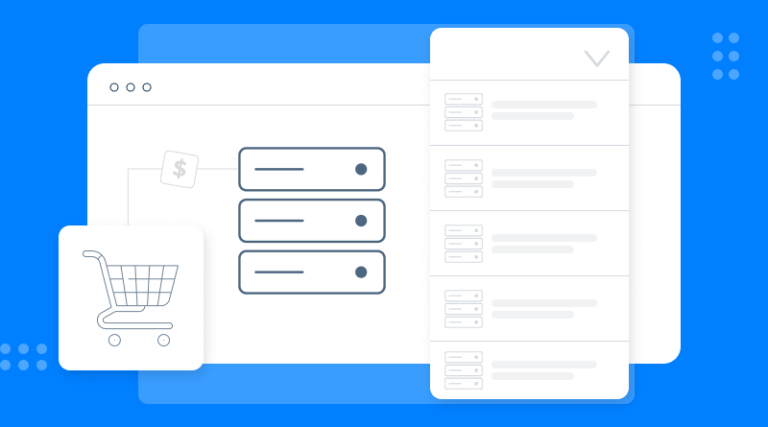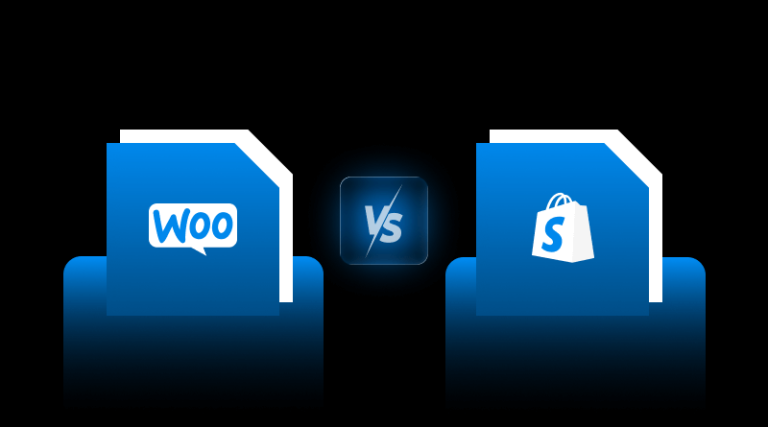Hostinger and HostGator are two major web hosting brands dominating the industry. Both offer cheap web hosting plans in different categories like shared hosting, VPS, dedicated hosting, and more. Besides, both offer faster web hosting plans, and their testimonials reflect the same. They might look similar, but each web hosting brand offers a distinct approach and value.
This blog gives a comprehensive comparison of both providers. Unveil the core differences between them based on pricing, features, and plans.
Table Of Content
HostGator and Hostinger: Explained in a Nutshell
Hostinger laid its foundation in 2004. A Lithuanian-based web hosting provider has garnered attention as an affordable service provider. It offers a wide range of hosting services: shared, cloud, WordPress, VPS, and more. Other add-on services include a business name generator, an AI website builder, and more that ease the web development task for techies.
HostGator, an Hostinger alternative, was an early mover against Hostinger. It was founded in 2002 in Texas. Since then, it has become a well-established and reliable web hosting company for more than 2 decades. Excellent customer support and myriad web hosting options are its major USPs.
Hostinger vs. HostGator: Comparing Features
Both HostGator and Hostinger portfolios include free domains, SSL certificates, and email accounts. But comparing features will influence our purchasing decision. Let’s discuss.
| Feature | Hostinger | HostGator |
| Rating | 4.7/5 | 4.6/5 |
| Price (From) | £2.99/mo | £2.95/mo |
| Uptime Guarantee | 99.90% | 99.90% |
| Storage Space (From) | 10GB SSD | 20GB SSD |
| Free Domain (1st Year) | Yes | Yes |
| Free SSL Certificate | Yes | Yes |
| Site Migration | Free unlimited migrations for WordPress and open-source sites | Free HostGator’s Site Migration Tool |
| Automated Backups | Free (weekly) | Yes (daily) |
| Email Accounts | Free (first year) | Yes (unlimited accounts) |
| 24/7 Live Support | Yes | Yes |
| Money-Back Guarantee | 30-day | 30-day |
1. Control Panel
Hostinger deploys its proprietary hPanel control panel. Its sleek and elegant user interface allows users to manage multiple technical tasks like SSL configurations, domain names, email accounts, databases, and more.
HostGator leverages the third-party control panel tool cPanel. Accessing advanced features like email account management, security monitoring, and database handling is easily done. You can find all the main tools in the cPanel.
2. Storage
Hostinger web hosting plans are configured with SSD NVMe storage. It is faster than traditional SSDs. Website speed matters for higher user interaction and search engine rankings. It makes SSD NVMe a great choice compared to traditional SSD storage from HostGator.
A key market change in web hosting involves replacing unlimited storage plans with specific, limited disk space. Both Hostinger and HostGator commit to hosting up to 100 websites in 100 GB disk space. It may not be suitable for growing traffic. Whereas, MilesWeb gains the competitive edge by accommodating the same number of websites in 300 GB SSD NVMe disk space.
3. AI-driven Website Builder
Hostinger has an AI-based website builder that is not available with other providers. They include AI heatmaps, AI image generators, AI content generators, and others. Using Hostinger, one can build beautiful, professional websites within minutes.
With the intelligent tools of Hostinger, you can create layouts, compose search-friendly text, and suggest images depending on your idea. It suits bloggers, startups, and small businesses. It makes it fresh and functional by modifying designs as per your comments.
In contrast, HostGator sticks to a drag-and-drop interface (like Gator by HostGator), which requires manual adjustments for every word, tweak, and optimization. In comparison to Hostinger’s streamlined process, this is a time sink. For busy entrepreneurs, Hostinger isn’t just easier—it’s a time-saving powerhouse.
4. Security
Both web hosting providers have a firm stand on data security. They incorporate the best security features like DDoS, free SSL, and custom firewalls with every plan. However, these practices represent industry-standard measures, but 2FA represents a noteworthy distinction. Hostinger’s plans come with a 2FA feature, while HostGator plans do not have this feature.
Moreover, Hostinger offers 24×7 server monitoring and security modules backed by mod_security and PHP open_basedir. This provides sufficient protection to keep your website secure from common online threats. HostGator’s custom firewall offers the same level of security to keep suspicious and malicious traffic off your website.
5. Support Service
Both Hostinger and HostGator offer robust customer support, but with a different approach. Hostinger maintains a quick response time through live chat and email. For tech-savvy users, they offer how-to tutorials and guides.
Phone support is the favorite assistance channel that users prefer. Hostinger lacks in it, but HostGator has three separate contact numbers for domestic, international, and local clients. When the support system is flooded with queries, phone support resolves client issues instantly. So, HostGator gains an edge in providing hand-holding support to clients.
6. Performance
Performance-wise, both HostGator and Hostinger deliver similar performance. Experts employ tools such as GTMetrix and PageSpeed Insights to assess the performance metrics of websites hosted on the specified platforms.
The performance difference is not massive. However, Hostinger has more performance-oriented features with added content, graphic-intensive CSS/JS scripts, etc. This is a slight advantage that Hostinger offers to users.
We have analyzed the Hostinger and HostGator profiles. Both web hosts exhibit their own strengths and weaknesses. Hostinger is user-friendly and reasonably priced, making it a perfect option among novice users and those with limited funds. On the other hand, HostGator offers quality performance and outstanding support, which makes it a good competitor for clients who require phone support. Ultimately, the most suitable decision depends on specific needs and priorities. Think about your budget, technical skills, and what your website needs.
FAQs
1. Do Hostinger and HostGator offer a free domain name and SSL certificate?
Yes, Hostinger and HostGator include a free SSL certificate on all shared hosting servers and the free domain name is offered only for the first year when a user signs up for an annual plan.
2. Which host provides better value for money in their entry-level shared hosting plans?
PHostinger typically provides better value with its lower-end shared hosting offerings due to the fact that its base price is significantly cheaper, most of its shared hosting plans utilize faster NVMe SSD storage, and its mid- and high-end shared hosting offerings include a proprietary CDN.
3. What additional costs should I expect with Hostinger vs. HostGator?
You should expect higher renewal rates after the introductory period with both hosts. Moreover, HostGator often offers automated daily backup at a fee and even advanced security services like SiteLock, but Hostinger will offer it at the Business plan, but its entry-level plans can be limited to weekly backups.
4. Do both hosts offer a Content Delivery Network (CDN) to improve site speed?
Yes, both hosts are providing a CDN offering: Hostinger has its own inbuilt CDN on higher-dollar shared plans, and HostGator provides free Cloudflare CDN integration on the majority of plans to enhance content delivery globally.














